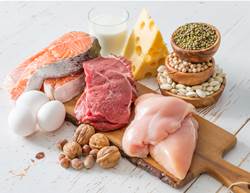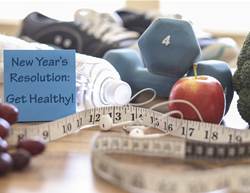Typically, we can make collagen ourselves, but several factors can affect the production of this essential protein. For example, increased sugar, stress, sunlight, smoking and autoimmune disorders all slow the production of collagen. In addition, the normal ageing process, including hormonal changes such as menopause, can directly affect the body's ability to produce collagen. Fibroblasts (cells that make up collagen) become less active, thicker and easier to break with age, so the collagen percentage in the body starts not just to drop but to plummet. Studies show that collagen production starts slowing around age 25-30 and decreases 1% per year after that. Combine this natural drop with the external factors affecting collagen production in our bodies, and it is a recipe for disaster.
Another factor contributes to the reduction of collagen in our diet: nutrition. Our ancestors subscribed to a "whole animal" nutrition philosophy. More of the tendons, cartilage and even bone were consumed. These parts of the animal, of course, were loaded with collagen. Now, I want you to picture a naked, boneless breast of chicken sitting in your grocery cart. See the problem? We are not consuming anywhere near as much collagen as we used to. This is a problem.
What parts of our body rely on collagen?
- Muscles
- Ligaments
- Skin
- Bone
- Blood vessels
- Digestive tract
- Corneas
- Heart
- Gallbladder
- Hair
- Nails
Because we know that this key component of the human structure decreases over time, it makes sense that we need to supplement regularly to support the ongoing optimal function of the body's many processes controlled by collagen. Before we get to that, there is one thing we should go over first. Many people mistake collagen for gelatin. Let's set the record straight on the difference between the two. Collagen, as you have learned above, is a short-chain amino acid that is insoluble and makes up many parts of the human body. We know that collagen is in the tendons, ligaments and bone of animals. We also know that, today, few people actually eat those parts. When you cook these parts, gelatin is released. You can think of gelatin as cooked, heated or broken-down collagen. Consider bone broth. Bone broth is the best example of the transformation of collagen into gelatin. Collagen and gelatin are essentially the same product with the same amino acid makeup, and they work in the body in a similar way.
One more thing must be discussed. At the beginning of this article, I drew your attention to the fact that many know collagen as a superficial skin therapy. Many high-end skin-care lines tout collagen as a key component. Often, they also say that their collagen is plant-based. Let me clear something up. There is no such thing as a plant-based collagen: Plants do not contain any collagen. Second, applying collagen to the surface of the skin has no effect. The proteins are too big to pass through the skin barrier. It is important to know that the only way for collagen to make your skin look better is to take it internally as food or as a supplement.
Collagen has several unexpected benefits beyond the skin:
- Aids muscle recovery and injury prevention in athletes: The proper amount of collagen in the body can create great elasticity in the tendons and ligaments and can help muscle metabolise and recover more efficiently after workouts.
- Releases fat from artery walls: We need healthy, scrubbed and clean arteries to stave off heart disease. Collagen helps accomplish this task.
- Helps build DNA strands: Ageing is simply our DNA replication slowing down over time. If collagen can assist in this process in any way, it means that time can slow a little, not just on the outside but on the inside as well.
- Increases energy production in cells: Fatigue, disease and dysfunction in the body can occur when our cells are not working at their optimal potential. Collagen gives those cells a little energy boost.
- Helps to heal the digestive tract and repair leaky gut: Many say that life and health start at the gut lining. If the gut lining is not absorbing food correctly, it opens us up to a whole host of problems. Collagen helps rebuild, soothe and heal angry intestines. This may be more valuable than you can imagine.
- Helps alleviate osteopenia: Osteoporosis is one of the leading health issues in aging women. Studies suggest that the addition of collagen to the diet may slow the bone loss cycle, which means that women can stay more active and not fear broken bones resulting from density issues.
So how do you get more collagen into your diet? Obviously, eating the skin, tendons and small bones of the meats in your diet is an option. Drinking bone broth, however, might be more palatable to most. Bone broth is easy to make at home and is loaded with protein and nutrients. You can also add a collagen supplement to your coffee or a smoothie. It is important to note that your body absorbs collagen much more readily in the presence of vitamin C, so if you add collagen to a smoothie, make sure to add some fruit or other food containing vitamin C. You can also use gelatin to make gummies, which is one of my favourite ways to get collagen into the body!
Collagen is not just about hair, skin and nails. Our entire connective system, from gut to bone, relies on collagen for optimal functioning. It is essential that we get quality collagen from our diets every day. So whether you decide to embrace whole animal nutrition, sip your favourite cup of bone broth or nibble on delicious gummies, make sure you are incorporating collagen as part of your nutrition profile.
This article 'Six Surprising Reasons You Should Be Taking Collagen Daily' originally ran on Fix.com






.jpg&h=193&w=250&c=1&s=1)


